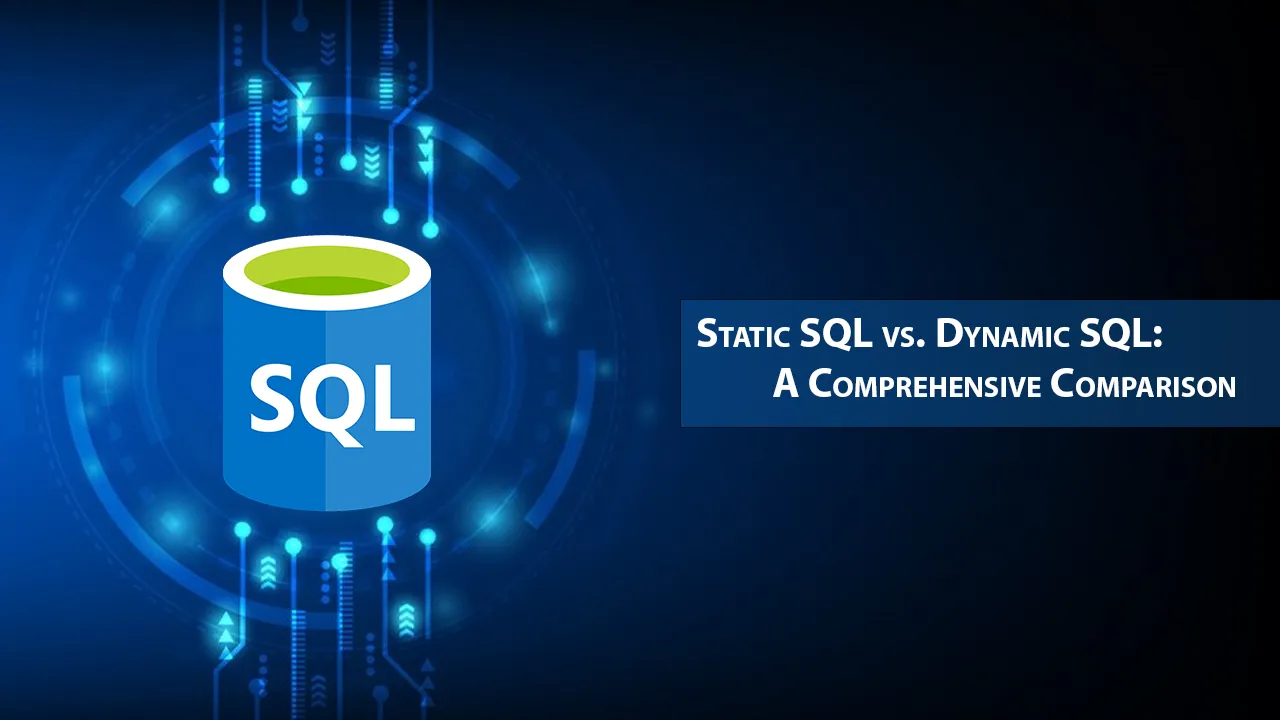Static SQL vs. Dynamic SQL: A Comprehensive Comparison
Static SQL vs. Dynamic SQL: A Comprehensive Comparison. Static and dynamic SQL are two different approaches to writing SQL queries. Static SQL queries are pre-written and cannot be changed at runtime. Dynamic SQL queries are generated at runtime, based on user input or other factors.
Static SQL
Static SQL refers to those SQL statements which are fixed and can be hard coded into the application. As static sqls are fixed queries, these statements can be analysed and optimized and do not require any specific handling for security purpose.
Dynamic SQL
Dynamic SQL refers to those SQL statements which are generated dynamically based on user's input and run in the application. Dynamic Sqls helps to develop general and flexible applications. Dynamic SQL may need more permissions and security handling and a malicious user can create dangerous code as well.
Following are some of the important differences between Static Routing and Dynamic Routing.
| Sr. No. | Key | Static SQL | Dynamic SQL |
|---|---|---|---|
| 1 | Database Access | In Static SQL, database access procedure is predetermined in the statement. | In Dynamic SQL, how a database will be accessed, can be determine only at run time. |
| 2 | Efficiency | Static SQL statements are more faster and efficient. | Dynamic SQL statements are less efficient. |
| 3 | Compilation | Static SQL statements are compiled at compile time. | Dynamic SQL statements are compiled at run time. |
| 4 | Application Plan | Application Plan parsing, validation, optimization and generation are compile time activities. | Application Plan parsing, validation, optimization and generation are run time activities. |
| 5 | Use Cases | Static SQL is used in case of uniformly distributed data. | Dynamic SQL is used in case of non-uniformly distributed data. |
| 6 | Dynamic Statements | Statements like EXECUTE IMMEDIATE, EXECUTE, PREPARE are not used. | Statements like EXECUTE IMMEDIATE, EXECUTE, PREPARE are used |
| 7 | Flexibility | Static SQL is less flexible. | Dynamic SQL is highly flexible. |
Which one should you use?
If you are writing a simple query that does not need to be modified at runtime, then you should use a static SQL query. If you are writing a more complex query that needs to be modified at runtime, then you should use a dynamic SQL query.
Here are some examples of when you might use static SQL:
- Retrieving all of the customers in a database.
- Updating the inventory of a product in a database.
- Deleting a customer from a database.
Here are some examples of when you might use dynamic SQL:
- Retrieving all of the customers in a database who have placed an order in the last 30 days.
- Generating a report of all of the orders that have been placed in the last week.
- Searching for a customer in a database by name or address.
I hope this helps!
